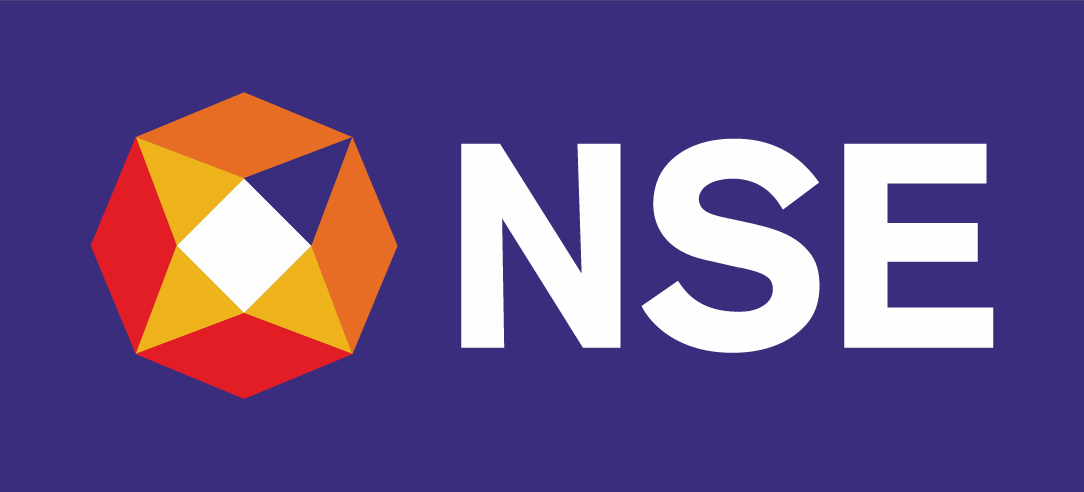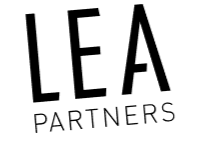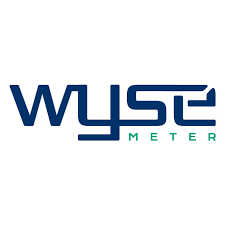- Private equity
- Papers
- Perspectives

Paul Newsome
Head of Investment Solutions
Private Equity
- There is much more exit activity happening in the mid-market than in the large and mega buyout space
- Secondaries discounts can be attractive but should come with a health warning
- In this environment, more than ever, it is important to build a portfolio of high-quality underlying companies that can deliver the desired cash flow pattern
Overview
As investors come back from their well-earned summer breaks, one issue continues to prey on their minds: “when will I get my money back?”
Exit activity for the first half of 2024 was 27% below that for the same period in 2023. This slide in activity has continued since the peak reached in 2021 and does not show any near-term signs of reversing. Investment activity has also been lower – in the first half it was 18% below that of the same period last year.
Lower exits, but not in the mid-market
The global aggregate value of private equity deals closed during H1 2024 was USD 284bn, 18% down on the same period last year[1]. This was driven by weak activity in North America (-8%) and APAC (-67%), while Europe (+39%) was strongly up, albeit off an unusually low H1 2023.
Given the expected disruption from the various elections happening around the world, not to mention the concern over frothy public markets, the delayed effect of high interest rates and the prospect of weaker GDP growth, we are unlikely to see a rebound soon.
Exit activity has been similarly lethargic. The global aggregate value of exits was USD 151bn in the first half of 2024 – a decrease of 27% on the same period last year[2]. This decline was mainly driven by North America (-38%), while Europe
(-10%) and APAC (-4%) were also down.
However, interestingly, the number of deals exited were actually 13% higher than during the same period a year ago. Put another way, the average deal size at exit is 42% lower than it was a year ago.
This suggests that there is much more exit activity happening in the mid-market than in the large and mega buyout space.
Indeed, we continue to see healthy exit activity within our portfolios. As previously reported, we exited four companies (Atria, Certania, Academia and Spirii) from our directs and emerging managers strategies in the first quarter. In the second quarter, we exited Robur from our directs strategy, and we are currently in the process of exiting two further companies from the same strategy. Finally, we hope to report on the exit of two other companies from our directs strategy later in the year.
Despite lower distributions, total fundraising volume for buyout funds in the first half was USD 233bn – 15% higher than the same period last year. As has been the case in recent years, the top 10 funds account for a majority of this, over 55%. However, the conundrum for large and mega buyout fund managers is how to deploy these war chests. In 2021, there were 131 buyout or growth deals with an enterprise value of greater than USD 1bn in the US and Europe. That was out of a total of almost 4,000 deals. In 2023, there were only 59 such large buyout deals and only 29 in the first half of 2024. More capital chasing fewer deals will obviously make competition more intense at the larger end of the market.
DPI is the new IRR
Historically, the favoured metric for benchmarking the performance of private equity funds has the been the IRR, equivalent to an average rate of return. This is mathematically defined as the discount rate at which the Net Present Value of a set of cash flows (to and from the investor) is equal to zero. Thus, it encapsulates both the relative magnitude and timing of investor cashflows. However, private equity fund managers have long learnt that these variables can easily be manipulated by, for example, utilising more debt in a deal to lower the amount of cash called from the investor, or using a credit line in order to delay the calling of cash.
Importantly, IRR treats realised proceeds and unrealised NAV in exactly the same way and so does not measure how much capital has been returned to investors. In a benign environment, judging performance by IRR alone may suffice. Indeed, investors are happy to see their capital continuing to appreciate in value providing that proceeds continue to come back in a predictable fashion.
However, in a “dry” market where exits take much longer and are more unpredictable, investors become more interested in the lesser-used DPI (Distributed to Paid-In) metric.
Which strategies give the best DPI in this environment? Within the private equity space, here are our tips:
Invest in the champions of tomorrow.
We define these as companies that are already leaders in their local markets, have predictable theme-driven growth, have a mission critical offering, and have strong financial fundamentals (high margins, high cash flows and limited debt). Typically, these companies are found in the mid-market. Such companies are able to grow substantially under private equity ownership, both organically and through acquisition. Critically, once proven, they are attractive to a range of buyers (trade and financial) and can then be exited in any environment.
In July 2024, for example, we closed an investment in Wyse Meter Solutions through a continuation vehicle managed by ONCAP. Wyse, a submetering services provider based in Canada, installs technology in residential buildings so that apartments can pay for their own exact energy usage, leading to a 30%-40% reduction in usage. The business covers both retrofits of existing buildings as well as new construction, and has submetering capabilities around electrical, water and electric vehicle charging. In North America, the vast majority of buildings are currently not submetered creating a huge white space in which the company can expand.
We believe Wyse has all the hallmarks of a future champion: market leader in the Ontario market with opportunity to expand into British Columbia and the US, strong market tailwinds, 10+ year contracts with highly recurring revenues, and exceptional EBITDA margins. Consequently, once further expansion has been proven, we believe that there will be multiple exit routes for the company, irrespective of the future macro environment.
Seek high quality secondaries
Secondaries are marketed to investors as an investment which has “fast deployment, with fast cash back”. However, this claim is very dependent on the secondaries strategy employed. Here are some things to watch out for:
- LP-stake focused funds do not always deliver early DPI. In a sample of blue-chip secondaries funds of vintages between 2018 and 2020 and with a focus mainly on LP-stakes, DPIs as of today (after 4-6 years) range only from 0.1x to 0.3x[3]. Why so slow? Such strategies typically rely on the use of a combination of leverage and recycling to boost TVPIs. As a result, it takes longer for investors to get their capital back.
- Beware of the deteriorating IRR! Up to year three or four of a typical large LP stakes-focused secondaries fund, the IRR can look great thanks to initial discounts, deal leverage and payment deferrals. However, in these cases, IRRs typically reduce over time due to the slower DPIs (as mentioned above) as well as the fact that large portfolios of LP-stakes contain a lot of “by-catch” – unwanted low quality portfolio companies which aggregate towards the end of the secondaries fund’s life and ultimately need to be liquidated at a deep discount.
- After 10 years, where is my money? We investigated a sample of 102 secondaries funds of vintages ranging from 2012 to 2020[4]. Firstly, c80% of funds aged between six and eight years had not yet delivered more than 1x DPI. Secondly, only four out of more than 20 funds older than 10 years had delivered a DPI greater than 1.5x net.
This is why we believe only an outcome-focused secondaries strategy can deliver to the original promise of secondaries. Over more than two decades, we have learned what the best components of an optimal secondaries strategy are. We have honed our fusion strategy – a deliberate balance between GP-led deals, single LP-stakes and direct secondaries – in order to achieve what we believe are the best outcomes for our investors.
In this environment, more than ever, it is important to build a portfolio of high-quality underlying companies that can deliver the desired cash flow pattern. In our case, we aim to deliver a DPI of 1x net to our investors after five years. We also aim to deliver continuous strong and predictable distributions through to the end of the strategy’s life.
Busting the discount myth
Often the first question an investor might ask a secondaries manager is “what discounts are you achieving on your deals?”. This is a fair question as it can be a measure of (a) whether the market is currently attractive, and (b) whether the manager can buy below market prices.
Buying secondaries at discounts is also attractive to the secondaries manager. Since investments would be immediately written up to NAV in the manager’s reporting to their investors, the secondaries manager can show a positive return as soon as the deal is closed.
However, secondaries discounts should come with a health warning. There is often a reason why certain secondaries deals are transacted at deep discounts – the seller wants to be rid of the portfolio and there are few buyers interested in it.
We looked at all secondaries transactions in our track record from 1996 to 2017 (in order to show only mature ones), representing 150 transactions[5]. We then grouped them according to the original discount paid. We made two interesting learnings:
There is zero correlation between the discount paid and ultimate performance. Yes, a decent discount at entry can possibly pave the way to a solid return on a deal. However, the highest quality assets will usually trade at little to no discount. This is not because of there necessarily being more competition, but simply that the seller would not want to part ways with a good asset for a low price.
Our best cohort has been deals with a discount between 0% and 5%. When we paid the biggest discounts on deals (greater than 20% discount to NAV), our average TVPI was 1.65x (1.5x net to investors). For deals in the cohort of 0% to 5% discount, an average TVPI of 2.05x (1.84x net to investors) was achieved. This is not surprising since, for the best assets or the highest quality portfolios, the ultimate returns will be driven by other levers such as organic growth, add-on acquisitions and continued margin improvement and will be less sensitive to the initial price paid.
Indeed, it turns out that the initial discount paid plays a limited role in determining the ultimate return. When we consider our historical secondaries performance, growth in underlying NAV post-acquisition drives 83% of performance while the initial discount paid only drives 17% of performance[6].
In mid-2021, we sourced the opportunity to invest in a continuation fund of Coastal Waste & Recycling, a vertically integrated waste management company focused on the Florida market, sponsored by Summer Street Capital. The deal was priced at a 2% premium to Q4 2020 NAV, implying a valuation of c10x EBITDA. During our due diligence, we were able to identify the trends driving the company’s growth, including the surge of migration into Florida, its diversified business lines, a pipeline of advanced add-on acquisition targets and a very experienced management team with a third-generation waste management professional at the helm. Following our investment, the rapid organic growth and accretive add-on acquisitions enabled the company to be more than two years ahead of plan, with revenue and EBITDA increasing by over 150% and 350%, respectively. Consequently, the company was sold through a competitive process leading to a 4.8x MOIC (4.2x net to investors) over a two-year holding period.
Therefore, we firmly believe that in any secondary transaction, the quality of the underlying assets is the first and last priority. Discounts are a “nice to have” but if the underlying companies do not meet our strict criteria – theme-driven growth, mission critical offering, strong financial fundamentals and low leverage – we will not do the deal.
Unigestion Private Equity Activity
Here are the highlights of some of the investments that we completed in Q2.

In April, Unigestion, together with ChrysCapital, invested in National Stock Exchange of India Ltd, India’s largest and most dominant stock exchange with over 90% market share in cash equities and equity derivatives and the world’s largest derivative exchange in terms of contracts traded. Given the under-penetrated market, a strong macro outlook, plusmincreasing institutional and retail interest, it is expected that this fast-growing market will maintain its momentum and NSE, with its dominant market position, will see elevated trading volumes.

Also in April, Unigestion closed an LP secondary transaction with Court Square Capital. Court Square Capital Partners is a US mid-market buyout firm founded in 1980 as the captive private equity arm of Citibank before spinning out and raising its first institutional closed end fund with outside capital in 2001. Today, the GP is focused on companies operating in the business services, healthcare, tech & telecom, and industrials sectors. The transaction involved the acquisition of LP interests in Court Square Capital Partners III and a staple to Court Square Capital Partners V. Given it’s tail-end characteristics, the portfolio of Court Square Capital Partners III has an attractive liquidity profile due to imminent dividend distributions and exits that are expected to deliver a 1.0x+ DPI over the next one to two years.

In May, Unigestion invested in a continuation vehicle for Tempo managed by Diversis. Tempo is a SaaS-based time-tracking solution focused on the Atlassian/Jira ecosystem, allowing DevOps teams to work together to stay coordinated and on schedule. The business provides a project and portfolio management tool for users, and is the leading provider of software development productivity applications on the Atlassian ecosystem. The company has an attractive financial profile featuring high double-digit historical organic growth, robust EBITDA margins and high free cash flow conversion. Further growth is expected from bundling solutions as Tempo continues its M&A strategy around supplementing the product set to provide a fuller suite of solutions to customers.

In the same month, Unigestion committed to LEA Mittelstandspartner III. Continuing its existing strategy, LEA Partners aims to build a portfolio of B2B software and tech-enabled service businesses with diverse end-markets headquartered in the DACH region. LEA Partners employs a replicable and proven value creation strategy focusing on team professionalisation, technological transformation towards cloud and SaaS, as well as pricing model optimisation. Complemented by a buy-and-build strategy end-markets and technology of its portfolio companies will be further developed. LEA Partners is well-positioned at the small end of the market to consolidate fragmented sub-sectors and sell to the highly-attractive exit market.

In June, Unigestion invested in a continuation vehicle for Wyse led by ONCAP. Wyse is a sub-metering services provider, helping install technology in residential buildings so that apartments can pay for their own exact energy usage. The company handles installation of the sub-metering hardware and operates a web portal showing billing and reporting information. The business is based in Toronto, Canada and primarily serves the Ontario market. Wyse’s business model features exceptionally long-term contracts (10yr+) with near-zero churn and highly recurring revenue and is expected to grow further through geographic expansion.
Important information
INFORMATION ONLY FOR YOU
This document has been prepared for your information only and must not be distributed, published, reproduced or disclosed (in whole or in part) by recipients to any other person without the prior written consent of Unigestion. It is neither directed to, nor intended for distribution or use by, any person or entity who is a citizen or resident of, or domiciled or located in, any locality, state, country or jurisdiction where such distribution, publication, availability or use would be contrary to law or regulation.
RELIANCE ON UNIGESTION
There is no guarantee that Unigestion will be successful in achieving any investment objectives. An investment strategy contains risks, including the risk of complete loss.
Except where otherwise specifically noted, the information contained herein, including performance data and assets under management, relates to the entire affiliated group of Unigestion entities over time. Such information is intended to provide you with background regarding the services, investment strategies and personnel of the Unigestion entities. No guarantee is made that all or any of the individuals involved in generating the performance on behalf of one or more Unigestion entities will be involved in managing any specific client account on behalf of another Unigestion entity.
NOT A RECOMMENDATION OR OFFER
This is a promotional statement of our investment philosophy and services only in relation to the subject matter of this presentation. It constitutes neither investment advice nor recommendation. This document represents no offer, solicitation or suggestion of suitability to subscribe in either the investment vehicles to which it refers or to any securities or financial instruments described herein. Any such offer to sell or solicitation of an offer to purchase shall be made only by formal offering documents, which include, among others, a confidential offering memorandum, limited partnership agreement (if applicable), investment management agreement (if applicable), operating agreement (if applicable), and related subscription documents (if applicable). Such documentation contains additional information material to any decision to invest. Please contact your professional adviser/consultant before making an investment decision.
Reference to specific securities should not be construed as a recommendation to buy or sell such securities and is included for illustration purposes only.
RISKS
Where possible we aim to disclose the material risks pertinent to this document. The views expressed in this document do not purport to be a complete description of the securities, markets and developments referred to in it. Unigestion maintains the right to delete or modify information without prior notice. The risk management practices and methods described herein are for illustrative purposes only and are subject to modification.
Investors shall conduct their own analysis of the risks (including any legal, regulatory, tax or other consequences) associated with an investment and should seek independent professional advice. Some of the investment strategies or financial instruments described or alluded to herein may be construed as high risk and not readily realisable investments, and may experience substantial & sudden losses including total loss of investment. These are not suitable for all types of investors. Unigestion has the ability in its sole discretion to change the strategies described herein.
PAST PERFORMANCE
Past performance is not a reliable indicator of future results, the value of investments, can fall as well as rise, and there is no guarantee that your initial investment will be returned. Returns may increase or decrease as a result of currency fluctuations.
NO INDEPENDENT VERIFICATION OR REPRESENTATION
No separate verification has been made as to the accuracy or completeness of the information herein. Data and graphical information herein are for information only and may have been derived from third party sources. Unigestion takes reasonable steps to verify, but does not guarantee, the accuracy and completeness of information from third party sources. As a result, no representation or warranty, expressed or implied, is or will be made by Unigestion in this respect and no responsibility or liability is or will be accepted. All information provided here is subject to change without notice. It should only be considered current as of the date of publication without regard to the date on which you may access the information. An investment with Unigestion, like all investments, contains risks, including total loss for the investor.
FORWARD-LOOKING STATEMENTS
This document may contain forward-looking statements, including observations about markets and industry and regulatory trends as of the original date of this document. Forward-looking statements may be identified by, among other things, the use of words such as “expects,” “anticipates,” “believes,” or “estimates,” or the negatives of these terms, and similar expressions. Forward-looking statements reflect Unigestion’s views as of such date with respect to possible future events and are subject to a number of risks and uncertainties, including, but not limited to, the impact of competitive products, market acceptance risks and other risks. Actual results could differ materially from those in the forward-looking statements as a result of factors beyond a strategy’s or Unigestion’s control. You are cautioned not to place undue reliance on such statements. No party has an obligation to update any of the forward-looking statements in this document.
TARGET RETURNS
Targeted returns reflect subjective determinations by Unigestion based on a variety of factors, including, among others, internal modeling, investment strategy, prior performance of similar products (if any), volatility measures, risk tolerance and market conditions. Target returns are based on Unigestion’s analytics including upside, base and downside scenarios and might include, but are not limited to, criteria and assumptions such as macro environment, enterprise value, turnover, EBITDA, debt, financial multiples and cash flows. Targeted returns are not intended to be actual performance and should not be relied upon as an indication of actual or future performance.
USE OF INDICES
Information about any indices shown herein is provided to allow for comparison of the performance of the strategy to that of certain well-known and widely recognized indices. There is no representation that such index is an appropriate benchmark for such comparison. You cannot invest directly in an index and the indices represented do not take into account trading commissions and/or other brokerage or custodial costs. The volatility of the indices may be materially different from that of the strategy. In addition, the strategy’s holdings may differ substantially from the securities that comprise the indices shown.
ASSESSMENTS
Unigestion may, based on its internal analysis, make assessments of a company’s future potential as a market leader or other success. There is no guarantee that this will be realised.
No prospectus has been filed with a Canadian securities regulatory authority to qualify the distribution of units of this fund and no such authority has expressed an opinion about these securities. Accordingly, their units may not be offered or distributed in Canada except to permitted clients who benefit from an exemption from the requirement to deliver a prospectus under securities legislation and where such offer or distribution would be prohibited by law. All investors must obtain and carefully read the applicable offering memorandum which contains additional information needed to evaluate the potential investment and provides important disclosures regarding risks, fees and expenses.
Legal Entities Disseminating This Document
United Kingdom
This material is disseminated in the United Kingdom by Unigestion (UK) Ltd., which is authorized and regulated by the Financial Conduct Authority (“FCA”).
This information is intended only for professional clients and eligible counterparties, as defined in MiFID directive and has therefore not been adapted to retail clients.
United States
In the United States, Unigestion is present and offers its services in the United States as Unigestion (US) Ltd, which is registered as an investment advisor with the U.S. Securities and Exchange Commission (“SEC”) and/or as Unigestion (UK) Ltd., which is registered as an investment advisor with the SEC. All inquiries from investors present in the United States should be directed to clients@unigestion.com. This information is intended only for institutional clients that are qualified purchasers as defined by the SEC and has therefore not been adapted to retail clients.
European Union
This material is disseminated in the European Union by Unigestion Asset Management (France) SA which is authorized and regulated by the French “Autorité des Marchés Financiers” (“AMF”).
This information is intended only for professional clients and eligible counterparties, as defined in the MiFID directive and has therefore not been adapted to retail clients.
Canada
This material is disseminated in Canada by Unigestion Asset Management (Canada) Inc. which is registered as a portfolio manager and/or exempt market dealer in nine provinces across Canada and also as an investment fund manager in Ontario, Quebec and Newfoundland & Labrador. Its principal regulator is the Ontario Securities Commission (“OSC”).
This material may also be distributed by Unigestion SA which has an international advisor exemption in Quebec, Saskatchewan and Ontario. Unigestion SA’s assets are situated outside of Canada and, as such, there may be difficulty enforcing legal rights against it.
Switzerland
This material is disseminated in Switzerland by Unigestion SA which is authorized and regulated by the Swiss Financial Market Supervisory Authority (“FINMA”).
Related insight
- Private equity
- Perspectives
Monitoring the performance of private equity funds is a critical responsibility for Limited Partners (LPs), as it plays a key role in shaping investment decisions throughout the life of a fund
[…]- Private equity
- Perspectives
Despite geopolitical and macro-economic uncertainties, 2025 has been a largely positive year for investors with public markets posting strong gains.
While investment conditions are far from perfect, inflation globally is moderating, the IMF has slightly upgraded its growth forecasts and many central banks are shifting to a more neutral or easing stance following a significant rate hike cycle that started in 2022.
[…]- Private equity
- Press releases
Unigestion Private Equity, the global specialist in mid-market leaders, is delighted to announce the final close of Unigestion Secondary VI (USEC VI). The fund was oversubscribed at its hard cap of €1.7bn ($2bn).
[…]- Private equity
- Perspectives
The public markets shrugged off continued macroeconomic and geopolitical concerns to post respectable performance in the third quarter of 2025.
[…]